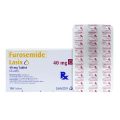Potassium is an essential nutrient that plays a vital role in various body functions, including muscle contraction, fluid balance, nerve impulses, and maintaining a healthy heart. However, excessive levels of potassium in the body can lead to a condition called hyperkalemia, which can be dangerous and even life-threatening.
In this article, we will discuss in detail how to flush excess potassium from the body. We will cover the causes, symptoms, and risks of hyperkalemia, as well as various methods to reduce potassium levels, including lifestyle changes, medications, and medical procedures.
What is Hyperkalemia?
Hyperkalemia is a condition characterized by abnormally high levels of potassium in the blood. The normal range of potassium in the blood is between 3.5 and 5.0 millimoles per liter (mmol/L). Hyperkalemia occurs when the potassium level exceeds 5.5 mmol/L.
The excess potassium in the bloodstream can affect the electrical activity of the heart, leading to irregular heartbeats, heart palpitations, and even cardiac arrest. Hyperkalemia can also cause muscle weakness, cramping, and paralysis, as well as nausea, vomiting, and diarrhea.
Hyperkalemia is a medical emergency and requires immediate treatment. If left untreated, hyperkalemia can lead to kidney failure, respiratory failure, and even death.
Causes of Hyperkalemia
Hyperkalemia can occur due to various reasons, including:
- Kidney disease: The kidneys are responsible for filtering excess potassium from the blood and excreting it in urine. In people with kidney disease, the kidneys may not function correctly, leading to a buildup of potassium in the blood.
- Medications: Certain medications, such as ACE inhibitors, angiotensin receptor blockers, and potassium-sparing diuretics, can increase potassium levels in the blood.
- Dehydration: Dehydration can cause the potassium concentration in the blood to rise, as the amount of water in the body decreases, and the concentration of electrolytes, including potassium, increases.
- Adrenal insufficiency: The adrenal glands produce hormones that regulate electrolyte balance in the body. In people with adrenal insufficiency, the adrenal glands may not produce enough hormones, leading to high potassium levels.
- Trauma or burns: Injuries, burns, or surgeries can cause the release of potassium from damaged cells, leading to hyperkalemia.
- Acidosis: Acidosis is a condition in which the blood becomes too acidic. Acidosis can cause the potassium to move from the cells into the bloodstream, leading to hyperkalemia.
Symptoms of Hyperkalemia
The symptoms of hyperkalemia can vary from person to person and depend on the severity of the condition. Some common symptoms of hyperkalemia include:
- Weakness: Excess potassium can cause muscle weakness, especially in the legs.
- Nausea and vomiting: High levels of potassium in the blood can cause nausea and vomiting.
- Heart palpitations: Hyperkalemia can affect the electrical activity of the heart, leading to heart palpitations, irregular heartbeats, and even cardiac arrest.
- Shortness of breath: High levels of potassium in the blood can affect the functioning of the lungs, leading to shortness of breath.
- Tingling or numbness: Excess potassium can affect the nervous system, leading to tingling or numbness in the hands and feet.
- Paralysis: In severe cases, hyperkalemia can cause muscle paralysis, which can affect breathing and lead to respiratory failure.
Risks of Hyperkalemia
Hyperkalemia can have various risks, including:
- Cardiac arrest: Excess potassium in the blood can disrupt the electrical activity of the heart, leading to irregular heartbeats, heart palpitations, and even cardiac arrest.
- Kidney damage: High levels of potassium in the blood can damage the kidneys, leading to kidney failure.
- Respiratory failure: In severe cases, hyperkalemia can cause muscle weakness and paralysis, affecting breathing and leading to respiratory failure.
- Gastrointestinal problems: Excess potassium in the blood can cause gastrointestinal problems, such as nausea, vomiting, and diarrhea.
- Neurological problems: Hyperkalemia can affect the nervous system, leading to tingling or numbness in the hands and feet, muscle weakness, and even paralysis.
How to Flush Excess Potassium
The treatment for hyperkalemia depends on the severity of the condition and the underlying cause. In mild cases, hyperkalemia can be managed with lifestyle changes and dietary modifications. In more severe cases, medication or medical procedures may be necessary.
- Dietary modifications: One of the simplest ways to reduce potassium levels is to modify your diet. Foods that are high in potassium, such as bananas, oranges, spinach, and avocados, should be avoided. Instead, focus on low-potassium foods, such as apples, berries, carrots, green beans, and white rice. It is also essential to limit your intake of salt and avoid salt substitutes that contain potassium.
- Increase water intake: Drinking more water can help flush excess potassium from the body. Increasing your water intake can help dilute the concentration of potassium in the blood and increase urine output, allowing the kidneys to excrete more potassium.
- Medications: Medications may be necessary to reduce potassium levels in the blood. Potassium-binding agents, such as sodium polystyrene sulfonate, work by binding with potassium in the intestines and excreting it in the stool. Loop diuretics, such as furosemide, can increase urine output, allowing the kidneys to excrete more potassium.
- Dialysis: In severe cases, dialysis may be necessary to remove excess potassium from the blood. Dialysis involves using a machine to filter the blood and remove excess potassium, as well as other waste products.
- Insulin and glucose: In some cases, insulin and glucose may be used to reduce potassium levels in the blood. Insulin helps move potassium from the bloodstream into the cells, while glucose prevents hypoglycemia.
- Calcium: Calcium can help protect the heart from the effects of excess potassium. Calcium works by stabilizing the electrical activity of the heart and reducing the risk of cardiac arrest.
Prevention of Hyperkalemia
Preventing hyperkalemia involves making lifestyle changes and managing underlying medical conditions that can increase potassium levels in the blood. Some steps you can take to prevent hyperkalemia include:
- Avoiding high-potassium foods: Avoid or limit your intake of high-potassium foods, such as bananas, oranges, spinach, and avocados.
- Limiting salt intake: Limit your intake of salt and avoid salt substitutes that contain potassium.
- Staying hydrated: Drink plenty of water to stay hydrated and flush excess potassium from the body.
- Managing underlying medical conditions: If you have a medical condition that can increase potassium levels, such as kidney disease or adrenal insufficiency, work with your healthcare provider to manage the condition effectively.
- Taking medications as prescribed: If you are taking medications that can increase potassium levels, such as ACE inhibitors or potassium-sparing diuretics, follow your healthcare provider’s instructions carefully.
Conclusion
Hyperkalemia is a serious condition that requires prompt treatment. Excess potassium in the blood can lead to various complications, including cardiac arrhythmias, kidney damage, respiratory failure, gastrointestinal problems, and neurological problems. The treatment for hyperkalemia involves making lifestyle changes, such as modifying your diet and increasing water intake, as well as taking medications or undergoing medical procedures if necessary. Preventing hyperkalemia involves avoiding high-potassium foods, limiting salt intake, staying hydrated, managing underlying medical conditions, and taking medications as prescribed.
If you suspect that you have hyperkalemia or are experiencing any symptoms associated with high potassium levels, seek medical attention immediately. A healthcare provider can perform blood tests to check your potassium levels and recommend appropriate treatment. With prompt treatment and management, most people with hyperkalemia can recover without long-term complications.





